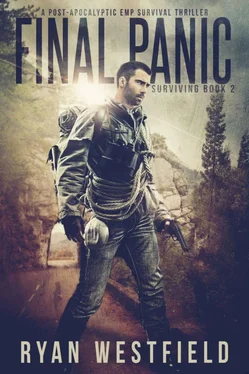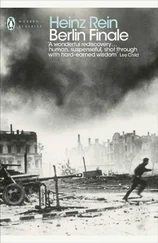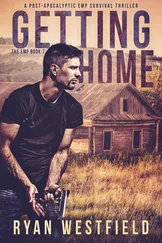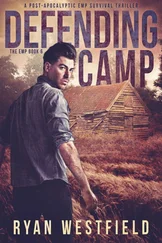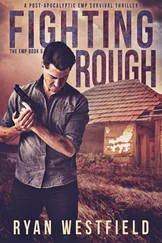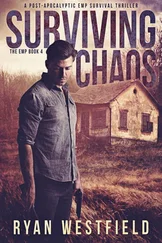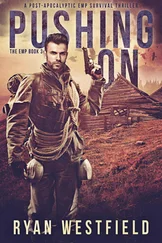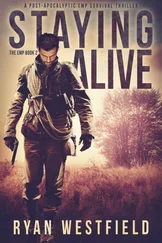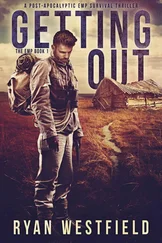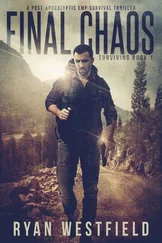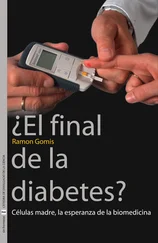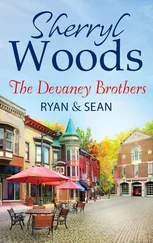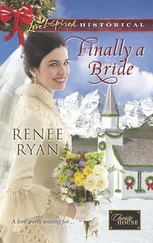Rob should have expected that something like this would happen to them. Their imaginary shotgun hadn’t been enough to protect them, and they were easy targets.
“People are cruel,” said Rob. “They didn’t have to kill them.”
“We’ve got to get used to it,” said Jim. “That’s the world we live in now.”
“They seemed like good people,” said Rob.
Jim nodded.
After a quick check of the rest of the house, in case there was anything they might be able to use, they left the house and climbed back in the RV.
Jim wordlessly started the RV and began driving. Aly and Jessica could tell, without anything being said to them, what had happened.
So they drove in silence, heading down the tree-lined road on a gray upstate New York day. They were headed into the complete unknown, and they all knew it. More than ever before, they all knew that there was certain danger that awaited them down the road. They knew that for the rest of their lives, there’d be no chance of living in peace and tranquility.
A completely new life awaited them, one in which they’d have to fight not just to feed and clothe themselves, but to keep themselves from being killed by those who were stronger and more vicious than themselves.
The odds weren’t in their favor. There was every chance in the world that they’d never live out their full lifespan, but instead meet some untimely end. But wasn’t that how humans had existed before the advent of modern society? For thousands and thousands of years, that’d been the human existence, never knowing which day would be your last.
Rob knew that they had the stuff to survive. It was deep in their bones. It was an attitude, something ancestral and ingrained in their brains. Humans weren’t meant, after all, to shop for their food in supermarkets and play social games of niceties. They were meant to hunt for their food and know how to defend themselves.
It was a return to the old way of life. They were losing security and safety, but they were gaining something. Something hard to describe. Something that might be called freedom.
SIGN up for my newsletter to hear about my new releases: http://eepurl.com/c8UeN5
At this date, this is the ninth post-apocalyptic novel that I’ve written. For a long time, I’ve thought about the fragility of the various aspects and institutions of modern society. I’ve thought about what could happen, where the weak spots are, and how I and others would respond to social breakdown.
When I started writing fiction, I was excited about exploring in stories the situations I’d played out in my head for so long. I was eager to share the ideas with others, and to get feedback in a way that wasn’t available to me before.
To my surprise, I’ve found that writing about post-apocalyptic scenarios has changed the way I think about them in unexpected ways. If there’s one thing I know about writing stories, it’s that it’s the characters, their emotions, and the suspense that comes from them, that makes the stories interesting to read. Descriptions of gear and survival techniques are certainly important, if not crucial, to stories such as these, but they are not the heart and soul of the book.
So in that sense, I’ve found myself concentrating more on the interactions between the characters, trying to imagine how they would really feel, and the thoughts that would go through their heads as they encounter these incredibly difficult life-and-death situations.
It was in concentrating more on the characters, what they feel, and their interactions with one another, that my thinking about these events slowly began to change.
There are plenty of things to fear in a situation like an EMP. Loss of power. Loss of services that we’re used to, like the transportation and availability of food products. But I believe that the most frightening thing, and the most serious threat, is that you will no longer be able to trust other people. In such a situation, your neighbors may turn on you, and strangers will be a serious threat.
Some people have responded to the idea of social breakdown by forming self-sufficient rural communities, where the members either currently live, or would retreat to should there be some catastrophic threat. There are advantages to this way of thinking: In most situations, communities would be more resilient than individuals.
The advantage of a community may not be obvious. First, there is the social advantage. Humans are usually happier in groups than on their own. In a post-apocalyptic scenario, happiness may not be achievable, but mental well-being shouldn’t be ignored either. When people (and even animals) feel better in general, they are more likely to make the correct decisions, and are even more likely to survive difficult circumstances and extreme situations. They are less likely to give up when things get tough, as proven by the very interesting research done on “learned helplessness.” There are also more tangible benefits, like the division of labor, and the advantage of having people with different skill sets. As people often say, the days where a man could be the master of all knowledge are long gone. Nowadays, there is simply too much to know, and each of us is unlikely to be an expert in auto repair, food foraging, firearms, bushcrafting skills, etc. Even different climates can require vastly different fields of survival knowledge, as the flora and fauna differ greatly across the regions. A group will have more total knowledge than an individual.
However, the solution of a community as a physical location, is not available to everyone, for a variety of reasons. Of course, there are other ways to go about this. Simply developing a stronger rapport with neighbors, for instance, could lead to unpredictable beneficial outcomes. Really knowing who they are will let you know whether they’d be an ally or an enemy, whether they can be relied upon (based on their strength of character) in hard times, and what sort of skills and supplies they have access to.
Developing working relationships with all sorts of people could be immensely beneficial. For instance, if there is a farmer nearby, or a neighbor with chickens in their backyard, you might offer to do some chores for them, in exchange for learning a new skill. You’ll come away not just with useful knowledge, but a new social contact, someone who you might be able to trade with or team up with in the future.
Such informal social arrangements might prove to be invaluable. After all, if there were an event like an EMP, none of the current social-connector tools we rely on would exist.
Of course, while developing strong social bonds is important, everyone should do everything they can to develop new skills and knowledge. Everyone should have a plan, and everyone should feel that they themselves as an individual know how to act in a variety of worst-case scenarios. After all, communities are only as strong as the individuals that make them up. And what’s more, communities are not always an option.
The point of this authorial interlude is not to suggest that the formation of a type of community trumps any other method of preparation. In fact, there are certainly countless individuals who would be fine on their own. I am merely trying to point to a place that I know was a weak spot in my own thinking, and perhaps in others’ as well. When it comes to being prepared, it’s always about trying to identify your own weakness and ways you can improve your strategy.
Ryan Westfield is an author of post-apocalyptic survival thrillers. He’s always had an interest in “being prepared,” and spends time wondering what that really means. When he’s not writing and reading, he enjoys being outdoors.
Читать дальше
